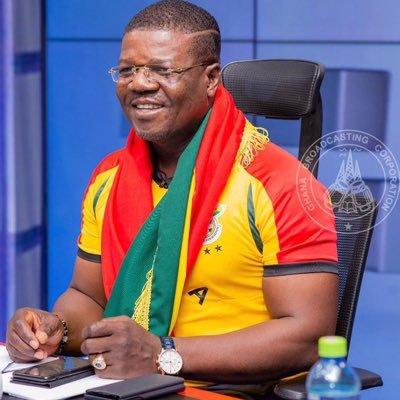adverts
Co-sponsor of the Human Sexual Rights and Family Values bill, Rockson-Nelson Dafeamekpor has disagreed with President Akufo-Addo’s decision to suspend assenting to the Anti-LGBTQ+ Bill until the court challenges are cleared.
The Office of the President officially requested Parliament to refrain from transmitting the Anti-LGBTQ+ Bill to President Akufo-Addo for his assent.
In a letter addressed to Parliament on Monday, March 18, and signed by the Secretary to the President, Nana Asante Bediatuo, the request was made in light of two pending applications for an order of interlocutory injunction currently before the Supreme Court.
adverts
The letter emphasised that it would be improper for Parliament to proceed with transmitting the Bill to President Akufo-Addo for any action until the matters before the court are addressed.
However, the South Dayi MP stated that no pending court case can prevent the president from performing his constitutional duty.
Speaking on JoyFm’s Top story on March 19, he argued that in many instances where there was a court case to challenge the authenticity of election results, the President was not hindered from performing his duty.
Mr Dafeamekpor clarified that in this same instance, an interim injunction cannot prevent the President from carrying out his duty, including assenting a bill.
“If you read the Supreme Court decision in the dismissal of the Electoral Commissioner Charlotte Osei, no court can injunct a president from performing his functions under the constitution.
“That is why there is a presumption of regularity of performance of functions of the president until a court otherwise removes him.
“So for instance, when a president is elected into office, sworn in, and takes the oath of office, and another who contested is aggrieved and goes to the Supreme Court, what the President does until the court pronounces on the validity or otherwise of the election of that President is not declared venality. So you cannot say that because the election of the President is challenged, you can bring an action to injunct the President not to perform the functions imposed upon the office of the President,” he said.
Additionally, the legislator said the President could still carry out his mandates until the verdict of the case. In this instance, he said the verdict of the case does not affect past events.
“It can only be, going forward, the decision of the court can only be going forward but it cannot affect any decision that he takes whilst occupying that office. That is why if anybody and in any case let’s this make clear you can only challenge an act of Parliament, a bill is not an act of Parliament properly so called.
“So it only when a bill is declared unconstitutional that its effect can be challenged,” he added.
On the same show, Associate Professor at the University of Ghana Law School, Professor Kwadwo Appiagyei-Atua, said there was no need for this issue to constitute a constitutional crisis.
He explained that the President might have decided to wait to hear the court verdict on the issue because, in the case of the E-levy where the minority chastised the president for assenting to the bill despite an injunction application, this time President Akufo-Addo might want to do right by the people.
“If the President decides not to sign the bill or assent to the bill but to wait for the court to pronounce on it, I think the President is doing the right thing. So, all we have to do is to wait for the President for him to make the determination of the injunction. I think that is what the President is trying to say,” he said.
Touching on the letter communicating the President’s stance on the matter, he said that for the Executive Secretary to have his signature on the letter instead of the President might not give the needed credence to the content of the letter.
“As for the letter signed by the Executive Secretary, I don’t think it carries any weight because it is not the President himself,” he added.


